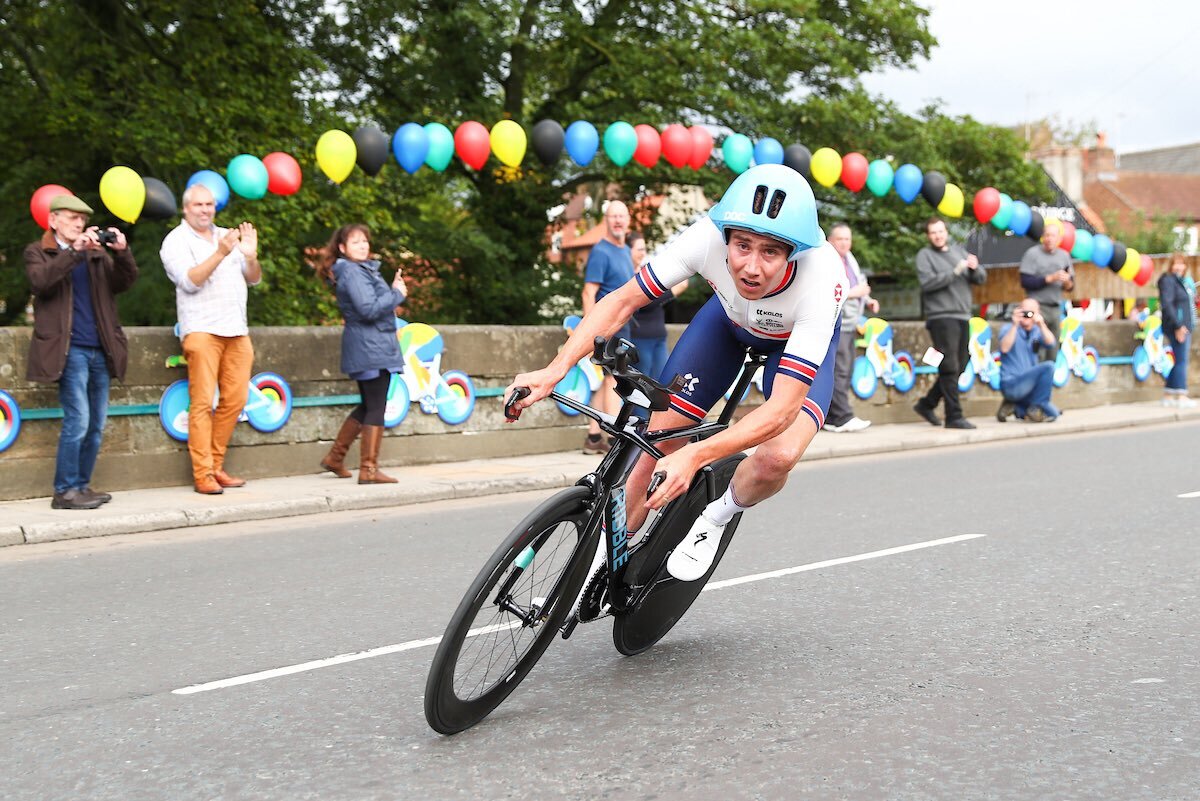
The powerhouse from the Ribble Weldtite Pro Team has a chat with us about how the pro's train, here TT ace John Archibald talks power, FTP and racing again.

Time trial beast!
John Archibald is without a doubt a force to be reckoned with on the road - with time trials being his real passion. So, we had a (socially distanced) chat with the 29-year-old Scotsman.
John, tell us a little bit about how you got involved with Ribble Weldtite? I had been racing for a local Scottish team in 2017, when a current rider for Ribble, Jacob Tipper, approached me at the National 25 TT Championships in 2017. He hinted that there could be an opportunity for me on the team, and a few days later I had a phone call with Jack Rees to confirm it all. Having seen the types of riders already supported by the team and their unique interest in time-trialling, I felt it was a perfect match. Now I'm into my 3rd season with Ribble Weldtite.
What is your background in cycling? Growing up, I did the odd cycling trip as part of a family holiday. I was more interested in swimming as an athletic endeavour. However, after commuting to work by bike in 2012 and developing my interest from there. I did my first road race in 2014 and started to take it more seriously.
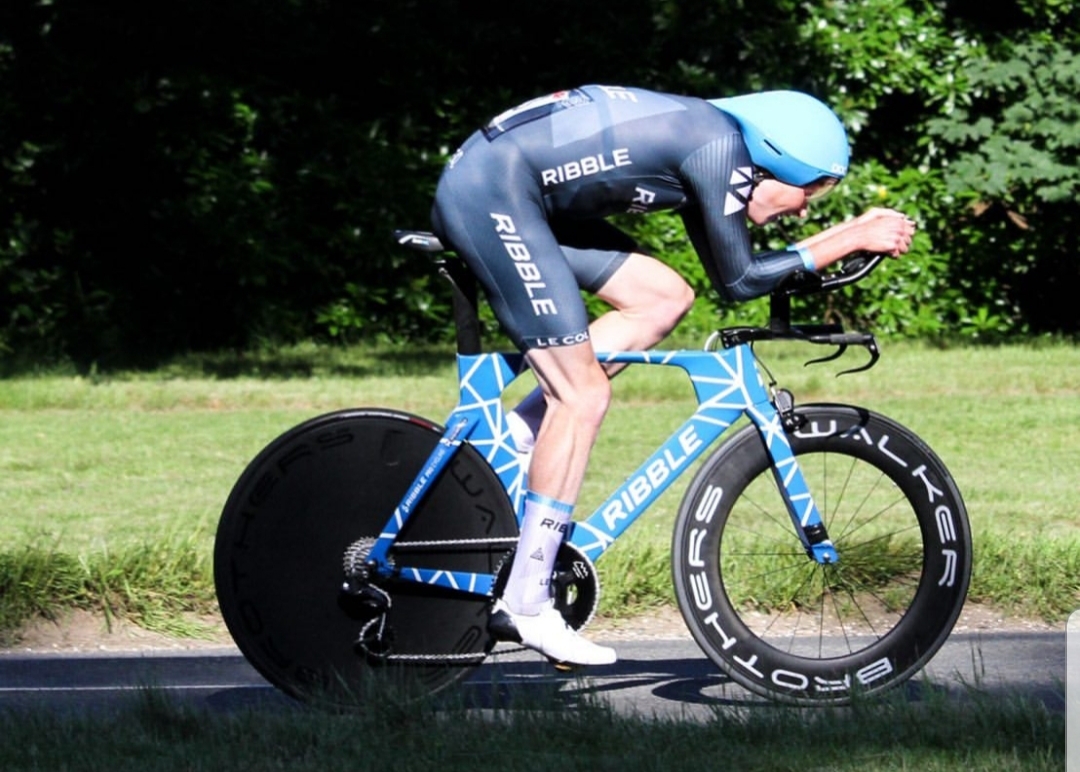
Where is your favourite place to ride? At home, I really enjoy the varied terrain we have on offer. I can do hill reps on the Crow Road (5km @ 5%), or do TT reps on the Stirling flats (20km between 2 roundabouts). The road surface leaves a lot to be desired, but the local area still has a lot to offer visually. We have Loch Lomond, the Trossachs and the Campsie hills to get your teeth stuck into.
From a foreign point of view, I really enjoy Mallorca when the weather is good enough to ride there. If you like your longer, sustained climbs, then this would be an easy choice.
What are your main strengths as a cyclist? Time trials, sustained power, and breakaways. I wouldn't describe myself as punchy, but a reasonable VO2 effort (3-8mins) or a hard and fast breakaway on the flat plays to my strengths.
We know you have a love of TTs, is it your favourite type of race? Time trials are a firm favourite. But I wouldn't get everything I want from cycling without entering road races. The lottery of them all, the tactics and the aspects that are out of your control make them really exciting. Being a more team-focused event means that you can share in the success and failures, regardless of how little or large an impact you had that day. Again, flatter ones would be my choice, I don't have the punchy rider profile or physique for dancing up the bergs.
You had a great 2019 season, what has been the highlight of your career so far? Our bronze in the Mixed Team Time Trial Relay. Winning a medal at World Championship level will always remain a career highlight. With the whole process seeming so far distant from reality. I didn't quite acknowledge how cool the achievement really was at the time.
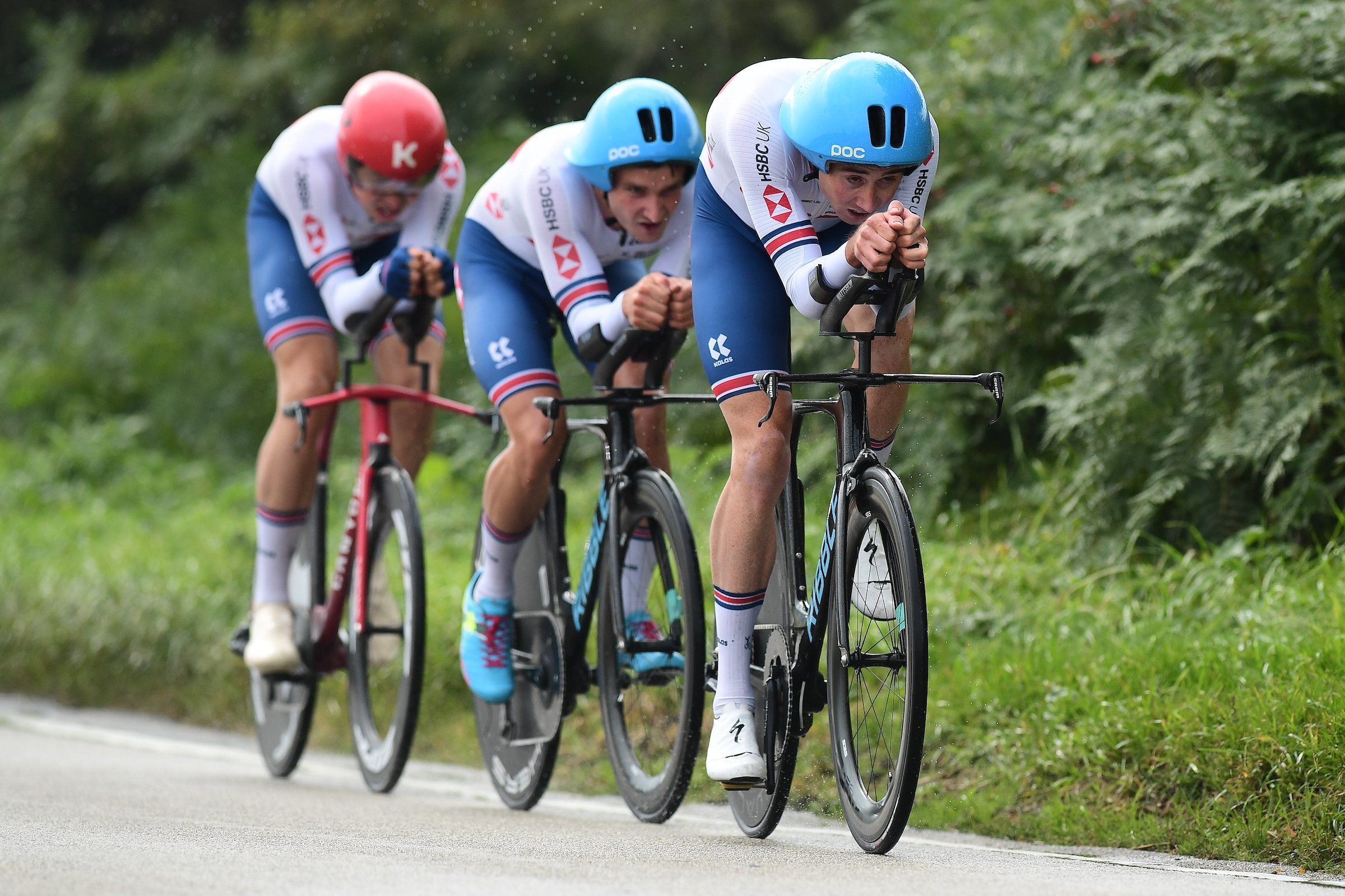
Tell us a little about FTP and how you use it? There's seems to be so many ways to define and calculate FTP, depending upon which methodology you subscribe to. Personally, I see it as my sustainable power for durations of 40 to 60 minutes. I use it as a yard-stick for my time trialing performance, and for basing interval prescriptions below my anaerobic threshold.
How can we improve that number? I'm not a physiologist, but I see there being several ways to improve it, depending on your strengths and limiters. From a high-level view, your VO2 max determines the ceiling for your FTP. You can, therefore, improve your FTP as a percentage of your VO2 max, or raise your VO2 max to drag your FTP up along with it. These are different processes, but high endurance volume is a proven method, as are aerobic intervals targeting sub-threshold intensities or VO2 max power.
Can you tell us a bit about how pro's use that number in training and in races? FTP can be useful for setting training zones below your anaerobic threshold. Therefore pro's can use the number for setting long endurance rides, tempo intervals, and specific threshold intervals. Being such a strong performance indicator, if you see your FTP improving, it's usually a good sign of form. However, it's not the golden ticket to winning a race.
I can't speak for everyone, but in races I only use FTP when considering my energy expenditure. Any time I'm above FTP in a race, I like to have a really strong justification for it, as this energy is finite. It can be useful for measuring efforts in breakaways or long climbs. But at some point, you have to ditch the numbers. If the racing is hard and it's above your FTP, you can't ask everyone in the race to slow down... you've just got to roll with it.
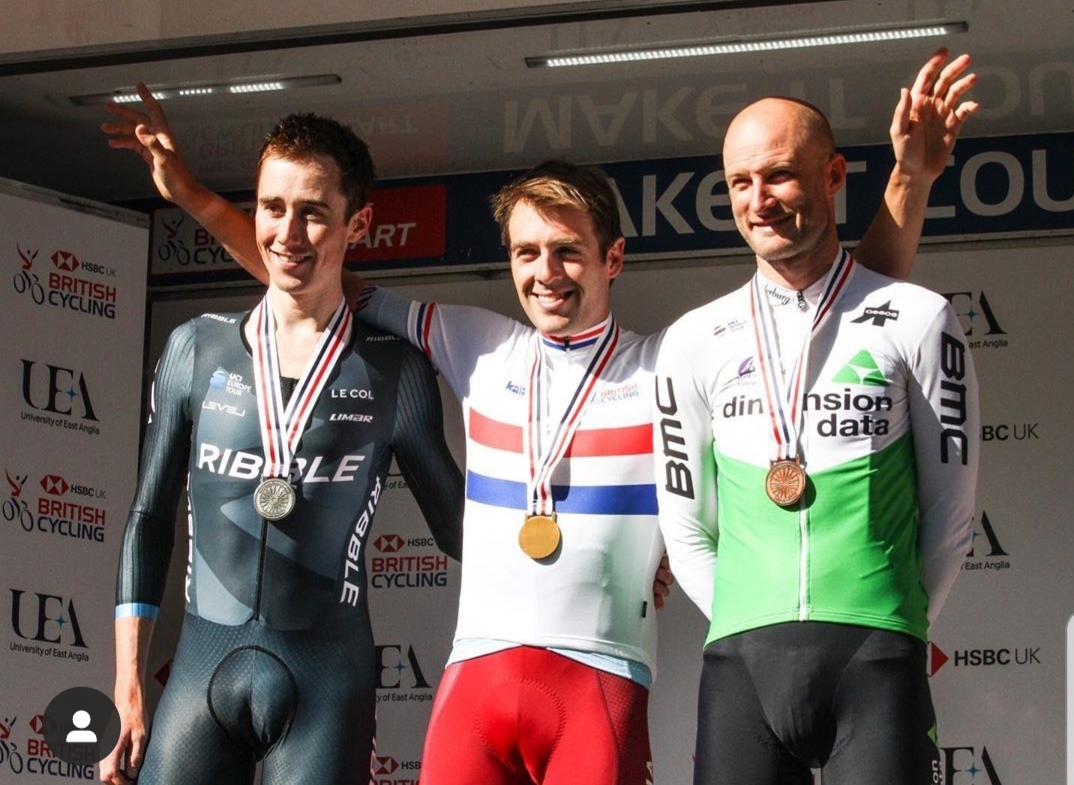
What should people be thinking about in training rides? I see "purpose" as being very important. Every training ride should have a purpose. My personal gripe is when I feel riders are missing the forest for the trees.
Do the basics right, then worry about marginal extras. When you leave the house to train, have a structure for what you want to accomplish and plan the ride with your entire training cycle in mind. For coached athletes, hopefully, this is taken care of.
For recreational riders, enjoyment on the bike is all you should worry about. For racers asking the best of themselves, don't mince about expecting miracles. Put a plan in place with structured progressive overload and adequate rest.
Vague as all this sounds, it's because it's only my personal opinion and bias, which is something everyone should learn to question. No one person has all the right answers, so don't worry about perfection, consistent execution is the route for progression.
How easy is it to do an FTP test? By their nature, FTP tests are hard. You're treading that edge of a maximum lactate steady state, so it's very uncomfortable physically and mentally. Anyone with a power meter and some consistent riding in their legs can do one. Just make sure you're fresh and motivated to hit it with your best effort.
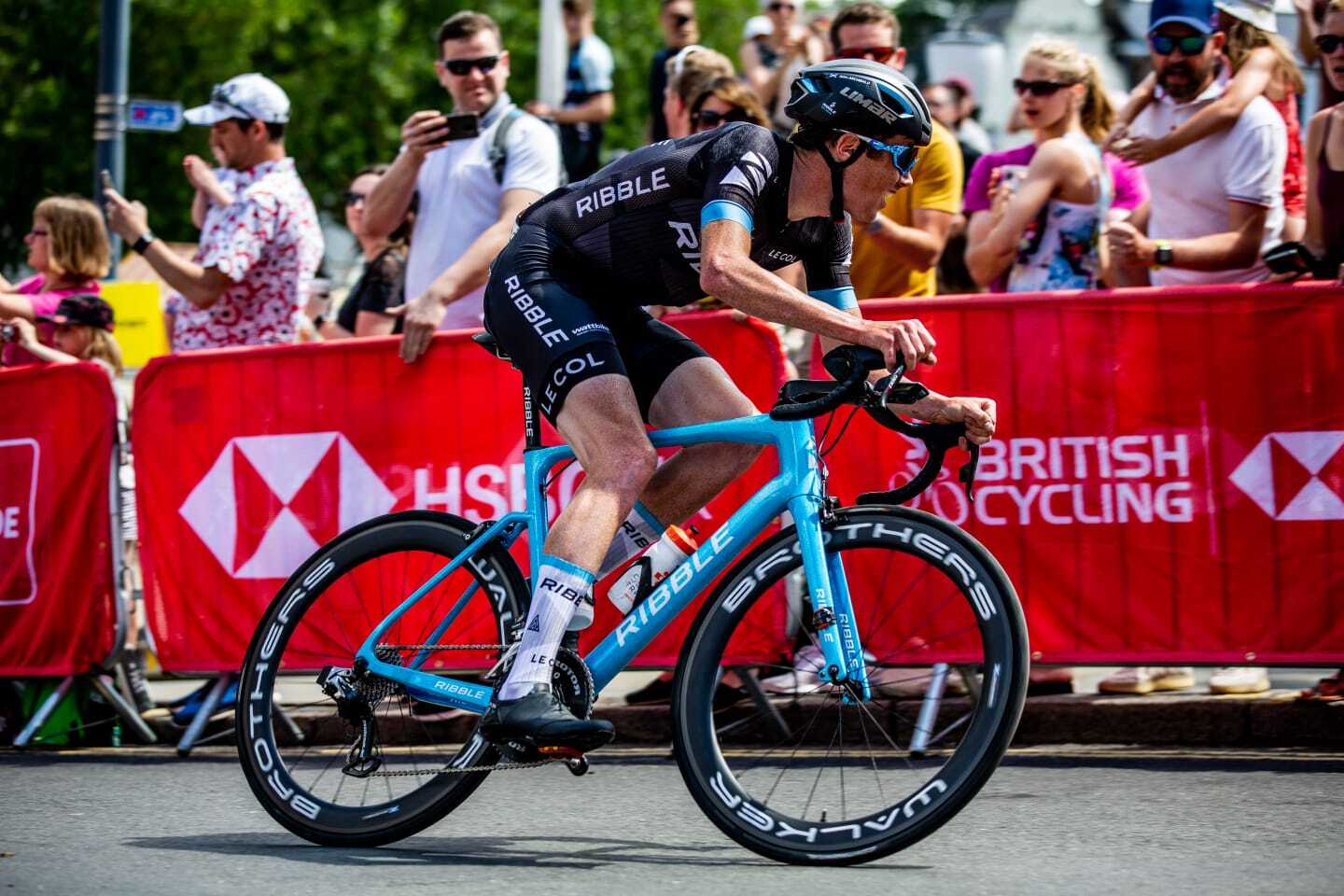
You've shown you love the pain in cycling, so do you like doing them? I like doing them as they're a great yardstick for measuring progress. It's not the only test I do in my training, but certainly part of a running battery of performance measures. While I can see how people would dread them, when you learn to take it at face value, you can relax a lot more with them. Testing is training; training is testing... and it's just a number.
How often would you take an FTP test? Doing them more regularly removes a lot of the dread and stigma around testing for me. Whilst I can't expect FTP to improve every week, periodically checking my training to measure your progress is really undervalued in my opinion.
If I'm regularly competing in time trials or sustained power events that act as an FTP test, I don't need to test.
However, I see no harm in testing every 6 weeks if you wanted to. I would hate to train for 6 weeks and not find out if my training had impacted my fitness. Whilst FTP is only one metric, I regularly test a variety of power durations to see how a training block may or may not have impacted my performance.
Certainly, testing after a long lay-off the bike is vital. Unknowingly training to interval prescriptions that are above your capabilities is the worst situation to be in.
Let's talk lockdown. How is training going? It's going very well. I haven't struggled to motivate myself, and the enforced gap of racing has allowed me to work on a base level of fitness that I haven't addressed in too long.
What plans have you got for the rest of the year? Everything is up in the air, but I'm still planning for a best-case scenario, with racing hopefully resuming in August.
Imagining that there will be plenty to go at, with everyone trying to cram events into a short calendar, I'm not sure what to expect.
Certainly, the TT championships are always a domestic goal that I target. We will hopefully look at international UCI opportunities also. Making the World Championship team last year was a real high, so any case I can make for my re-selection would be a target also.
If you're the sort of cyclist with strict training structure why not read our interview with aerodynamic expert and king of the marginal gains Dan Bigham. Read it here.
One of Ribble Weldtite's new signings for 2020 we caught up with George Mills-Keeling to find out how training is progressing, what types of races he prefers and more. Read it here.